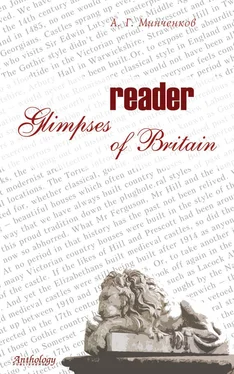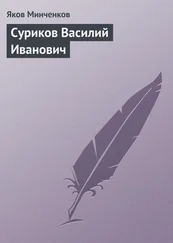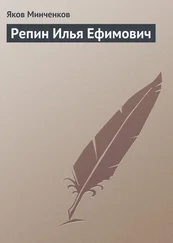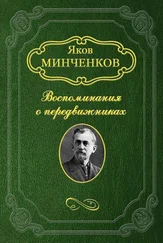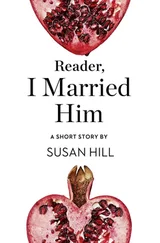Amazingly, more than one in five believed it was Alexander the Great and 13 per cent said it was Napoleon.
The BBC poll, published today, also reveals that less than half of the young Britons knew Sir Francis Drake fought in the English fleet against the Spanish Armada. One in five believed the hero of England’s victory in 1588 was Christopher Columbus. And the same number thought it was either Horatio Hornblower or Gandalf – both fictional characters.
The findings left education campaigners aghast at young people’s lack of knowledge about their nation’s past.
Ignorance, however, was not entirely confined to the younger age groups. The survey of 1,000 Britons from 16-year-olds to pensioners uncovered glaring gaps in many people’s knowledge of key historical events that shaped our history.
They may have given us our calendar, our roads, the first modern toilet and contributed to our language, but one in five Britons were unaware the Romans ever came here at all.
One in ten 16 to 24-year-olds actually thought Britain was conquered by Germany.
And despite this year’s widespread coverage of the 60th anniversary of the D-Day landings, a third of respondents failed to answer a basic question about the Second World War.
Just 69 per cent knew the Battle of Britain took place during the 1939–45 conflict, with the figure dropping to 51 per cent among 16 to 24-year-olds.
A fifth of that age group believed it occurred during the First World War, while 12 per cent said it was fought 600 years earlier, during the Hundred Years War involving England and France.
Just half of those polled knew the name of the battle celebrated by Orangemen in Northern Ireland every July 12.
Only 18 per cent of 16 to 24-year-olds correctly identified it as the Battle of the Boyne, where Catholic King James II’s troops were defeated by Protestant William III in1690.
A quarter believed the Orangemen were celebrating the battle of “Stamford Bridge” while one in ten answered the Battle of the Bulge.
An astonishing 15 per cent thought the answer was “Helmsdeep” – the fictional battle that marked the climax of The Two Towers, the second novel in Tolkien’s Lord of the Rings trilogy.
The figures, released to mark the start tomorrow of BBC2’s Battlefield Britain series on landmark conflicts, prompted calls for history to be made more prominent in the school curriculum.
Nick Seaton, chairman of the Campaign for Real Education, said: “The survey clearly shows that our state education system has got a lot to answer for.
A grounding in national history is essential for all young people in order to understand the present. This is extremely shocking. Last month, education watchdog Ofsted said secondary schools spent too little time teaching teenagers about the British Empire and too much on Nazi Germany.
Time spent on the Empire as a topic could amount to one lesson a year for 11 to 14-year-olds and almost nothing for GCSE pupils.”
Peter Snow, who presents Battlefield Britain with his son Dan, said: “It’s at once a shock and a challenge that so many people can be so wrong about some of the key moments in Britain’s past.”
by Robert Hardman
Daily Mail, August 4, 2004
They all thought it was going to be a bit of a lark on the other side of the Channel. No one expected to see their best mate liquidised by a shell or choke to death on mud and gas in a rat-infested quagmire. As far as Fred Lloyd and his pals were concerned, they were just going to give the Kaiser a bloody nose.
Back then, it was simple. Germany had rejected Britain’s ultimatum to uninvade Belgium and so mighty Britain was at war with silly Germany. It would all be over by Christmas, of course.
Today, Mr Lloyd and an extraordinary little band will bring Whitehall to a halt as they gather to recall how horribly wrong the world got it that fateful day – August 4, 1914.
It seems incredible that there is anyone alive with a first-hand story of World War I. But Britain still boasts 23 veterans of that monstrous conflict.
And at 11 this morning, four of George V’s men will be at the Cenotaph to mark the day the world changed.
“We never thought it would last long. No one thought of it as the Great War then. It was just going to be a skirmish,” says Mr Lloyd, 106, still shuddering at the naivety of it all. “All those boys. Thousands of young boys dying in an hour. It’s just so stupid.”
It certainly did not seem stupid to 16-year-old Fred Lloyd, then a gardener on a country estate at Uckfield, Sussex. Nor did it seem stupid to William Stone, then a 14-year-old farmhand at Sherford Down Farm in Devon.
“I was working with the cows at the time. The postman came up and told us: ‘We are at war with Germany,’ ” says Mr Stone, now 103. “We were all anxious to join as soon as we could.”
He was too young to enlist at the time but remembers that one of the other lads on the farm went straight off to the Royal Marines and thence to a watery grave off the Orkneys in HMS Hampshire, alongside Lord Kitchener and 641 other men.
Mr Stone, who went on to serve in the Royal Navy in both World Wars, is due to give a reading shortly after Big Ben chimes 11am. Alongside him will be Henry Allingham, Britain’s oldest war veteran. He turned 108 two months ago, on the very day that those young pups, the Normandy veterans, were marking the 60th anniversary of D-Day.
He was yet another excited young man on August 4, 1914. Already obsessed with motorbikes, he saw the war as an opportunity to ride a racier model and immediately tried to enlist as a dispatch rider at a London recruiting office.
But the Royal Engineers had enough riders already and Mr Allingham’s widowed mother was unwell. So he remained at home until her death the following year when he promptly entered the Royal Naval Air Service.
The fourth member of this morning’s gallant quartet will be Jack Oborne, who was a 14-year-old apprentice carpenter on the day that war broke out.
It would be another three years before he put on a uniform, although he would still have more than enough time to experience the very worst that the Western Front had to offer.
This morning may be the anniversary of the day it all began. But August 4, 1914, will not be uppermost in the minds of these men. As a bugler sounds the Last Post, they will be remembering what happened next.
Fred Lloyd, the youngest of 16 orphaned children, wanted to follow his three older brothers into the Army but was turned down by the local Sussex Regiment for being too short. He was, though, allowed to join the Royal Artillery to look after the horses which were still vital to trench warfare. Despite an attack of meningitis which nearly killed him, Private Lloyd made it out to northern France, where it was his task to take fresh horses up to the line and bring the sick ones back. To this day, he is baffled by the number which lost their sight. “Hundreds of horses went blind in that war, but I don’t think anyone ever worked out why that was.”
He remains very reluctant to discuss the sights he saw, so much so that he has never even shared them with his family. “He opened up to me once about it, telling me how everything from thoroughbreds to old nags were just blown to pieces. But it made him very distressed,” says Dee Johnson, who looks after Mr Lloyd at the Thornbury Residential Home in East Sussex.
Of his three brothers, one was killed at Arras, one died at the Somme and the third returned home with shrapnel in his head. Mr Lloyd still regards himself as one of the lucky ones.
So, too, does Mr Stone. “Every day, I think what a bloody lucky man I am to be here,” he tells me from the Oxfordshire home where he still lives alone, doing his daily exercises with his chest-expanders and handgrips: “I’ve got such a strong handshake, people won’t shake hands with me.”
Читать дальше
